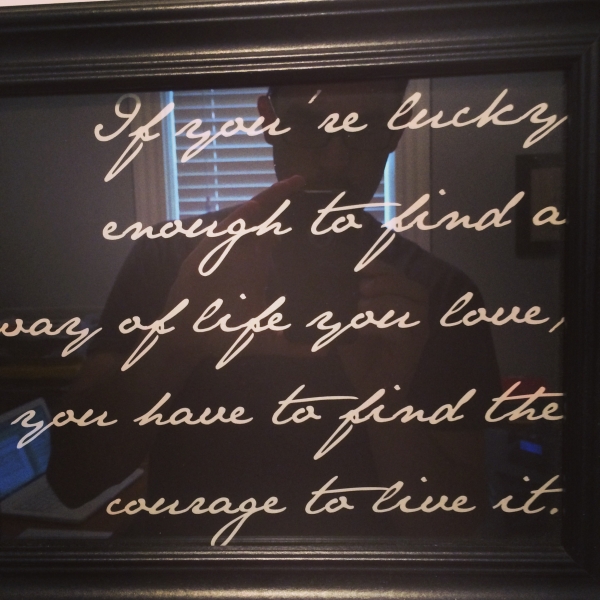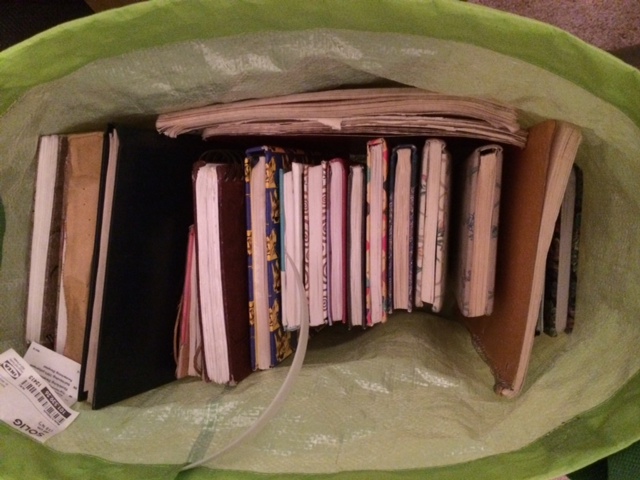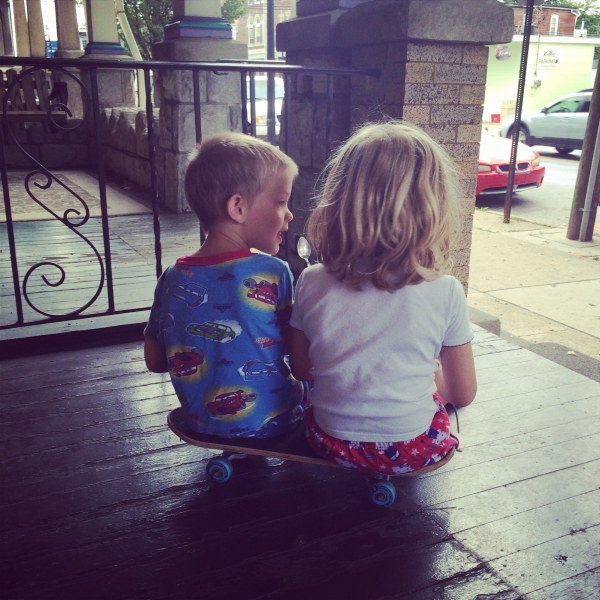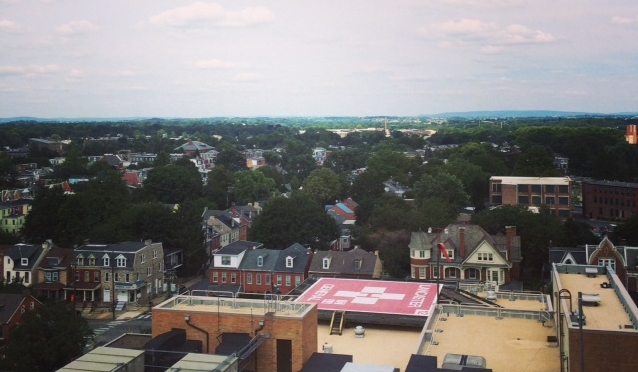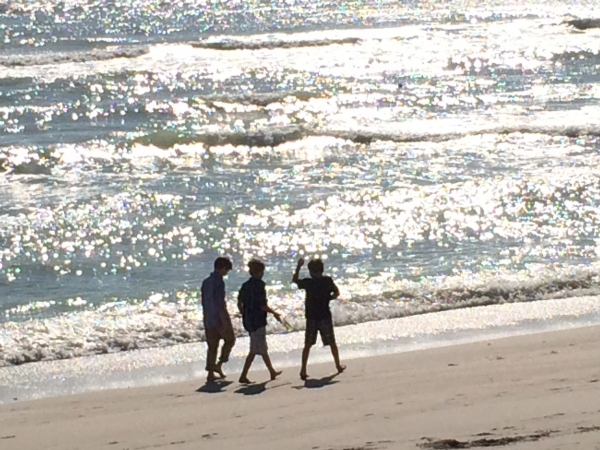
Maile and I sat at a table outside the cafe, enjoying brunch together. The four oldest kids were at my parents’ house, and Leo sat quietly in his stroller, wearing his mustachifier (a pacifier with a huge mustache on it), gathering laughs from nearly everyone walking by.
It’s a rare moment these days, when the noise and busyness subsides and Maile and I can look at each other and really see.
“It’s hard to believe,” a kind old man said as he walked by, looking at Leo. “It’s hard to believe all of us were that small at one point.”
“Yes, it is,” I said. “It’s hard to believe.”
And more people walked by and Maile and I talked about life and writing and schooling the kids. We ate nice food and we sat quietly and the trees that lined the city street whispered in a cool breeze. Cars drove by. The sky, up above the tall brick buildings, was blue.
* * * * *
“I think I need to take a break from writing at my blog,” I had told Maile just the night before. With the projects I’m working on for other people, and with trying to finish up this novel by winter time, I just don’t know if I have time to write blog posts.”
It’s this sense of being stretched, and as time passes and the stretching continues, fabrics begin to tear in places. My ability to be a good father unravels a little. My ability to be a good husband frays a bit around the edges.
* * * * *
“Excuse me, are you Shawn Smucker?”
A young woman stopped beside the table where Maile and I were eating. She had two children with her. I recognized her face but couldn’t place her.
“Yes,” I said. “And you look very familiar.”
“You probably don’t know me,” she said. “But I read your blog.”
She smiled and told me her name. We had gone to the same college, and she was two years older than me. She asked us how we liked life in the city, and we found out that she lived not too far from us. She was very kind.
Then, before she walked away, she said something that had a big affect on me.
“I have to tell you, I find your blog very encouraging. My husband and I are on the edge of making a pretty big decision, and your posts about courage and trust have had a big impact on both of us.”
I was floored. Sometimes it feels like these words are dust thrown into the wind.
* * * * *
“So maybe you shouldn’t stop blogging?” Maile said after the young woman walked away.
* * * * *
I’m telling you this story for a few different reasons.
First of all, being recognized on the street was probably the highlight of my week.
Second, the blogs might flow a little thinner around here in the next month as I try to finish my novel and prepare for the Kickstarter campaign. Before that sidewalk conversation, I had planned on telling you today that you wouldn’t hear from me at all for the next month or two, but I guess her’s was the encouragement I needed to hear. (Also, if you want updates on the novel, you can like my Facebook page or subscribe to my newsletter in the right hand margin of this page.)
Finally, and most important of all, you need to be reminded that what you’re doing is making a difference. The stuff you’re writing, the time you’re spending with young people, the encouragement you give a friend, the evenings with your child, the long days taking care of an aging relative…the ripples are spreading out from the work that you’re doing, and the world (contrary to popular belief) is becoming a better place for it.
Keep doing. Keep being.

